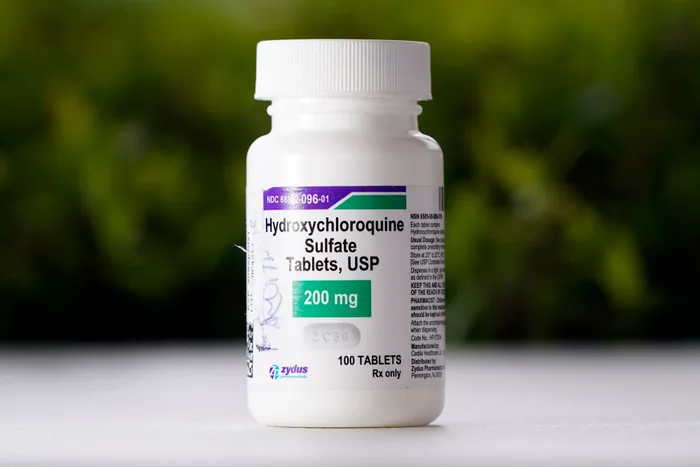Health alert: 3 questions about hydroxychloroquine answered

=Several authors of a large study that raised safety concerns about malaria drugs for coronavirus patients have retracted the report, saying independent reviewers were not able to verify information that’s been widely questioned by other scientists. Picture: David J. Phillip/AP
Hydroxychloroquine has been trending for hours, following a video of a medical doctor calling for the use of the medicine to “cure” for Covid-19.
Donald Trump Jr.’s Twitter account was also temporarily suspended after the US president’s eldest son shared a video of a group of people touting hydroxychloroquine as an effective treatment for Covid-19.
Last month, The Food and Drug Administration revoked emergency use authorisation for the drug after determining it may have deadly side effects, and the World Health Organization (WHO) also said it would discontinue its own tests of hydroxychloroquine.
According to WHO, The trial's Executive Group and principal investigators made the decision based on evidence from the Solidarity trial, UK's Recovery trial and a Cochrane review of other evidence on hydroxychloroquine.
The WHO recently answered some questions about this medication on their website:
What is the Solidarity Trial?
The Solidarity Trial is an international clinical trial to help find an effective treatment for Covid-19, launched by WHO and partners. It is hoped that one or more of the treatments under trial will result in improving clinical outcomes in Covid-19 patients and save lives. Other trials are on-going around the world in addition to the Solidarity Trial.
The treatment options are: Remdesivir; Lopinavir/Ritonavir; and Lopinavir/Ritonavir with Interferon beta-1a. The treatment options were originally selected based on evidence from laboratory, animal and clinical studies. Hydroxychloroquine was originally included in the trial but this arm was stopped, as of June 17 2020, as evidence showed it did not result in the reduction of mortality of hospitalised Covid-19 patients, when compared with standard of care.
Why was the use of hydroxychloroquine stopped in the Solidarity Trial?
On June 17 2020, WHO announced that the hydroxychloroquine arm of the Solidarity Trial to find an effective Covid-19 treatment was being stopped.
The trial's Executive Group and principal investigators made the decision based on evidence from the Solidarity trial, UK's Recovery trial and a Cochrane review of other evidence on hydroxychloroquine.
Data from Solidarity (including the French Discovery trial data) and the recently announced results from the UK's Recovery trial both showed that hydroxychloroquine does not result in the reduction of mortality of hospitalised Covid-19 patients, when compared with standard of care.
What will happen to the people who were already enrolled in the hydroxychloroquine arm of the trial?
Investigators will not randomize further patients to hydroxychloroquine in the Solidarity trial. Patients who have already started hydroxychloroquine but who have not yet finished their course in the trial may complete their course or stop at the discretion of the supervising physician.
The use of hydroxychloroquine and chloroquine are accepted as generally safe for use in patients with autoimmune diseases or malaria.